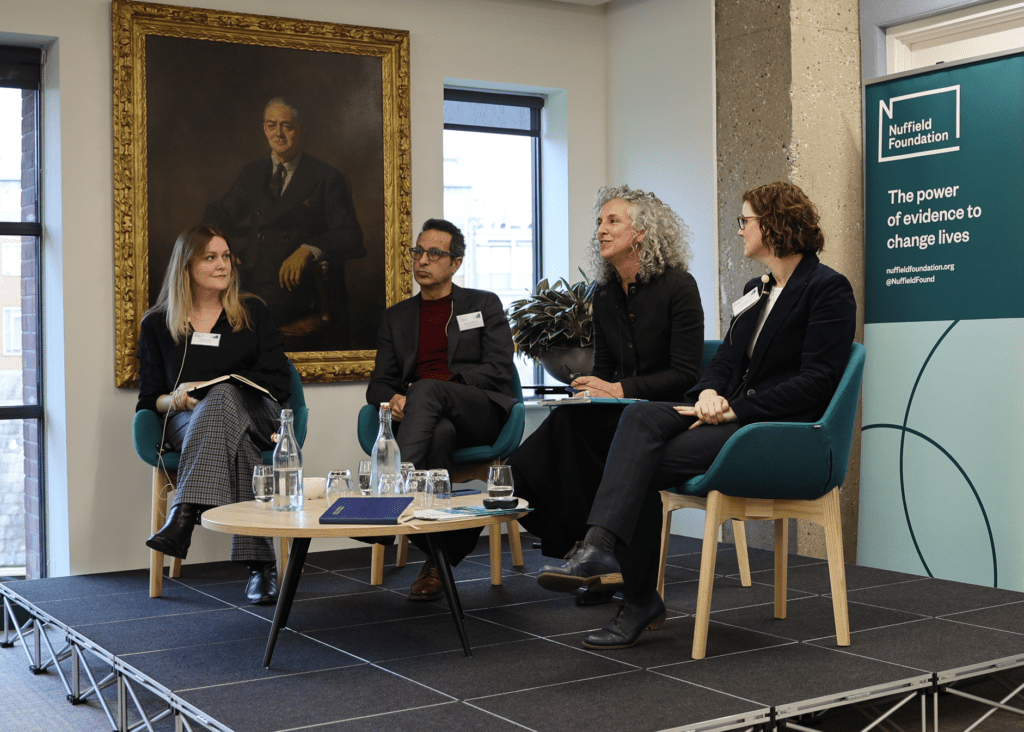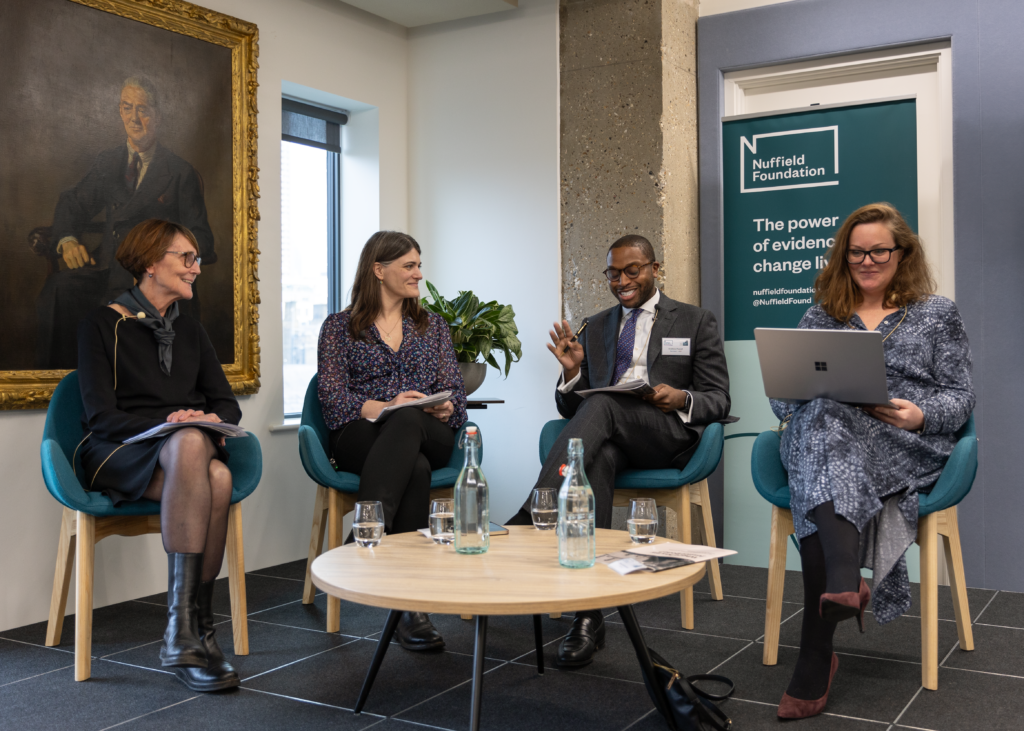
22/04/24
3 min read
We brought together a group of experts to critically examine the state of the justice system. Here are the key insights.
A fair and effective justice system is vital for individual and societal well-being; however, it is a system beset with challenges. As part of our 80th-anniversary series, we invited experts from across the UK to critically examine the current state of the justice system, what this means for those who encounter it, and how people’s legal experiences and outcomes might be improved.
Nuffield Foundation Trustee Sir Ernest Ryder opened the event with a keynote speech, followed by Dr Natalie Byrom who shared the findings of her report on accessing justice. Panellists included: Enver Solomon (Refugee Council), Polly Curtis (Demos), and Fiona Rutherford (JUSTICE). View the full agenda and speakers here.
The discussion on improving legal experiences was wide-ranging but some key themes emerged:
- Seeing ‘the face behind the case’
Examining the justice system from the perspective of those who encounter it is vital. Understanding what the wider public needs and expects from this system is also important. Looking at the reality of people’s experiences, and how they can be shaped by personal characteristics, will help us see more clearly where access to and participation in legal processes can be improved.
There were many examples of where this participation was hindered, intentionally or not, by the assumptions, complexity, and language of legal process, and sometimes by a culture of ‘bureaucratic indifference’ or even disbelief towards individual needs.
- Looking past processes and focusing on outcomes for people
The route to justice and redress can lie beyond the justice system itself, and fair treatment by all decision-making bodies is a key part of this. Instead of solely focusing on access to justice as the end goal, the key aim should be to deliver fair and effective outcomes for individuals and communities. We should shift our attention toward supporting people to find just resolutions to their problems. In some cases, those outcomes may be best achieved through problem-solving and innovative approaches that go beyond traditional legal processes and adjudication, especially through early preventive action.

- Resourcing a system that is fit for purpose
Inadequate resources are a fundamental factor in an increasingly stretched justice system. Their scarcity directly affects access to justice by limiting the availability of timely support and resolution. Indirectly, it can impact on feelings of respect and trust in the system as prolonged case delays and crumbling court infrastructure indicate the lack of priority that the State places on addressing people’s legal needs. But it is also important not to see all the system’s problems and their potential solutions as being about resources.
- Investing in justice
Although it can often be a late and blunt intervention, access to the justice system is a fundamental right that underpins a well-functioning society and economy – and an under-resourced system can act as a drag on both.
Services such as legal advice can act as a safety net and help avoid people’s problems escalating and saving costs elsewhere. However, the case for investing in justice often struggles to gain traction. We need more persuasive evidence demonstrating the value of addressing legal needs by investing in legal support and the wider justice system.

- Governance is about outcomes as well as principles
Governance of the justice system is inevitably complex, reflecting the need for a careful constitutional balance. However, shortcomings in current leadership and partnership arrangements impact beyond just matters of constitutional principles, also diminishing proper strategic oversight and the political priority of justice. The consequences are then felt through insufficient attention and resources, and a lack of accountability towards the needs of system users.
- Fill the knowledge gaps and take action
Inadequate scrutiny and prioritisation of justice partly both stem from, and are reflected in, the sparsity of available data and evidence. We often lack basic data on system users, including their vulnerabilities, their experiences of discrimination and their outcomes. Moreover, we have insufficient evidence on what would work best to effectively overcome problems, and a limited research capacity to exploit the existing evidence and data to best effect.
The absence of evidence not only hampers informed policymaking but can also permit inaction. Addressing these knowledge gaps by investing in research and data is possible, but that alone is not enough. Research should be a catalyst for action, being used to develop and test solutions and not just diagnose problems.

The overarching message from the event was that we need to prioritise the needs of individuals and communities who depend on the justice system and produce evidence for its reform to benefit everyone. We are starting to map out what role the Foundation can play here by refocusing our work on justice and will be presenting further information in our new strategy later this year.
In the meantime, read Dr Natalie Byrom’s report on how the justice system is falling short of meeting people’s needs and the evidence gaps that need to be addressed.









































